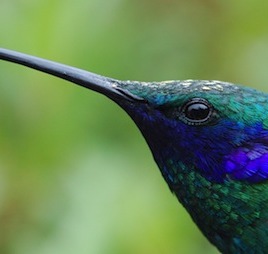One might think that larger birds invariably win fights with smaller ones, but a new study explains why that is not always the case. Researchers studied vultures at carcasses, hummingbirds at nectar sources, as well as antbirds and woodcreepers at army ant swarms to discover that some small birds have evolved ways to beat their opponents. […]
Tag: biodiversity
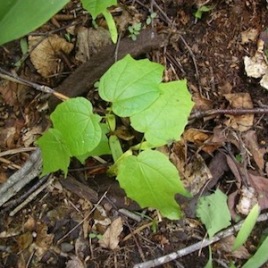
How will climate change affect sugar maples?
A changing climate means trees will grow in new places, but an experiment with sugar maples shows that other factors – such as soil conditions or seed predation – need to be taken into account as well. Researchers grew maple seedlings on the slopes of a Quebec mountain where climate conditions are more favourable for […]
Chemicals could help bee colonies fight mite infestations
Researchers have identified certain chemical compounds that could help fight infestations of the parasitic Varroa destructor mite, a major pest for beekeepers. The mites use smell to distinguish between different worker types in the bee colony, preferring younger ‘nurse’ bees over older foragers. The team found that treating the bees with certain chemical compounds confused […]
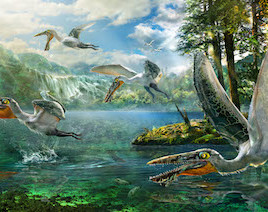
New Pterosaur – Avatar style
Researchers have found deposits of a new species of pterosaur, a flying reptile that lived about 120 million years ago. This new species was named Ikrandraco avatar for it’s similarities to the ‘ikran’ flying creatures in the 2009 Avatar movie and to a dragon (draco). The fossils were found in Northeastern China. Original research paper published […]
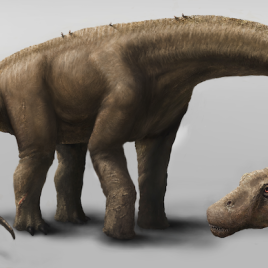
Colossal fossil: 26 meter dinosaur discovered
International scientists have found a new species of dinosaur in Argentina, named Dreadnoughtus, which may represent one of the most complete examples of gigantic titanosaurian sauropod dinosaurs ever discovered. It lived in the southern continents over 66 million years ago, and was one of the biggest creatures ever to walk the Earth. Dreadnoughtus was the most massive land […]
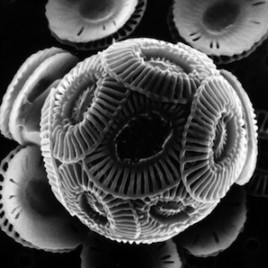
Phytoplankton produces its own vitamins
A type of phytoplankton found all over the world appears to be able to survive without external supplies of vitamin B1, leading to a re-thinking of how the vitamin controls growth and carbon uptake in the global oceans. The availability of nutrients and vitamins in the ocean is a key limiting factor controlling blooms of phytoplankton, […]
A fish out of water . . . can get used to it
A new study shows just how much a fish can change when raised in a land environment, and sheds light on the role such changes could have played in the evolution of land animals. Bichir (Polypterus senegalus) have both gills and lungs and, although they prefer water, can walk across land to reach new habitat […]
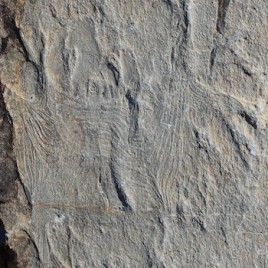
Newfoundland fossil may be world’s oldest muscle
A 560 million-year-old fossil from Newoundland’s Bonavista Peninsula may record the oldest evidence of muscle tissue, according to a new paper. The fossil comes from a time known as the Ediacaran period, renowned for its preservation of the first large and complex organisms known. Most Ediacaran organisms were flat, sheet-like, or frond-like creatures whose […]
MERS-CoV: Marmosets get sick like humans
Researchers have found that marmosets could be used as an animal model to study the Middle East Respiratory Syndrome coronavirus, also known as MERS-CoV. They observed that marmosets carry the same variant of a cell surface protein (DPP4) that MERS-CoV uses to invade human cells. This means that marmosets infected by MERS-CoV get as sick […]
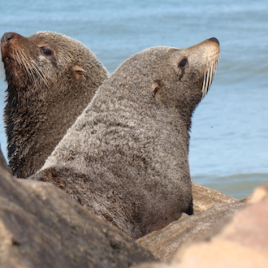
Ancient tuberculosis may have come from seals
Tuberculosis was already present in the Americas before European contact, and new research indicates that some strains may have arrived via an unusual route; seals and sea lions. Researchers have now sequenced the genomes of three strains of tuberculosis from 1000-year-old mummies from Peru. The strains are genetically very different from the European strains that […]
Genetically-modified salmon reproduce as fast as wild-type
Growth hormone (GH) transgenic salmon doesn’t reproduce faster than wild-type salmon, but transgenic salmon can reproduce with wild-type fish, a new study shows. GH transgenic salmon contains a chinook salmon growth hormone gene fused to an ocean pout antifreeze gene which significantly accelerate its growth rates. Researchers reared salmon in large (350,000 L), semi-natural, seawater tanks […]
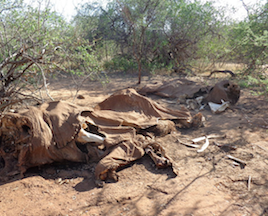
Poaching drives decline in African elephants
Researchers estimate that 7% of all elephants deaths in Africa between 2010 and 2012 can be attributed to illegal killings. The authors first surveyed elephant carcasses in Kenya’s Samburu National Reserve to distinguish between illegal and natural causes of mortality, then built a model to estimate poaching on the continent. The authors conclude that […]
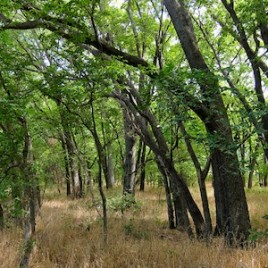
Are trees crowding out cows?
Livestock like beef cows can suffer when grasslands, shrublands and savannas shift to a more tree-covered landscape and new research has put a number on this effect. Using computer models the authors show that for every 1 per cent increase in tree cover, the number of reproductive cows per square kilometre drops by about 2 […]
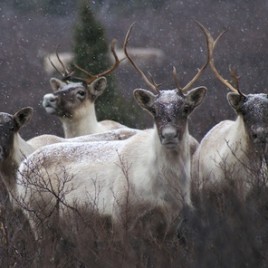
New tools to explain genetic diversity in caribou
Maintaining healthy genetic diversity in caribou means ensuring that populations don’t become fragmented, but a new study underlines just how tricky this can be. Currently, caribou preserves are constructed without taking into account how the habitat needs of caribou change throughout the year; for example, land that is prime pasture in summer may be snow-covered […]
Scientists propose ‘roadmap’ to determine the impact of fracking
An international review highlights the knowledge gaps related to the ecological consequences of shale gas development, and sets priorities for future research. The authors point out that shale-drilling operations have increased by more than 700 per cent in the United States since 2007 and that it has occurred mostly in areas of biological diversity, yet […]
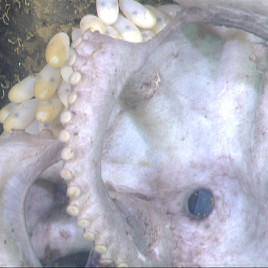
Deep-sea octopus broods eggs for over 4 years
A new study documents the case of a deep-sea octopus who tended her eggs for nearly 4.5 years, by far the longest egg-brooding period ever reported for any animal species. The octopus was first spotted a remote controlled underwater in a submarine canyon of the coast of California in 2007. Researchers returned regularly until the eggs […]
